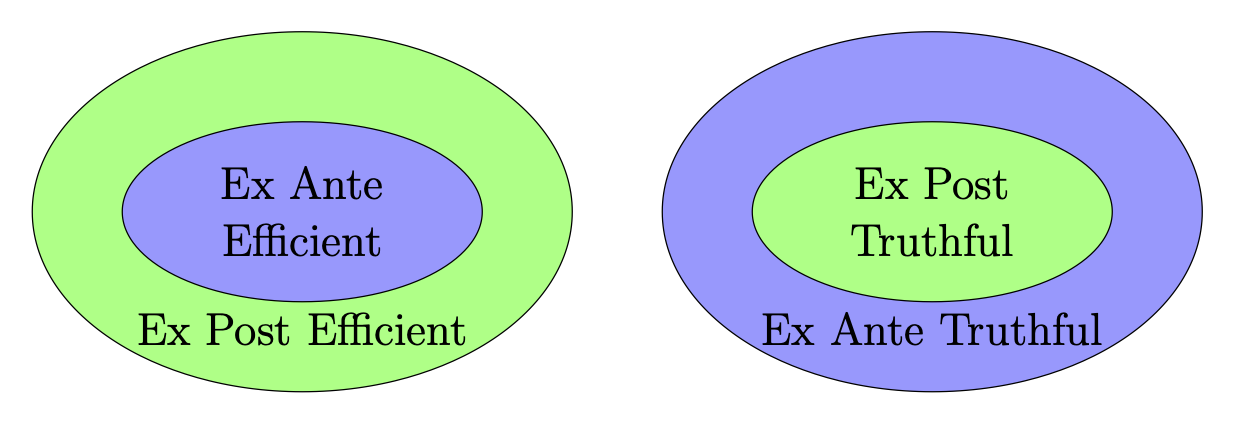Overview
This post argues that perhaps the research community has been using the wrong definition of truthfulness.
There are two natural approaches to defining what it means for a random mechanism to satisfy property : it can satisfy this property ex post (after the randomness of the mechanism is resolved), or ex ante (before the randomness is resolved). See Decomposing Random Mechanisms by Marek Pycia and Utku Unver for a more general treatment of the relationship between ex ante and ex post properties.
Depending on the property , the ex ante requirement can be either stronger or weaker than its ex post counterpart. In particular, as I explain below, we have the following relationship.
Erdil’s work proves that there are multiple mechanisms which are ex post efficient, ex ante truthful, and symmetric.
The choice to use ex post efficiency is necessitated by the fact that ex ante efficiency (also named ‘ordinal efficiency’) cannot be achieved at all if we also want truthfulness (either ex ante or ex post) and a weak fairness criteria (equal treatment of equals) – see Theorem 2 of A new solution to the random assignment problem by Bogomolnaia and Moulin.
The choice to use ex ante truthfulness is very standard, going back at least to Bogomolnaia and Moulin (Definition 5). On its own, this definition is very natural, and until recently, I hadn’t questioned it. The more I think about it, however, the more it seems unnatural to use ex ante truthfulness in conjunction with ex post efficiency. This inspires the following question, which to my knowledge is open! Someone should solve it.
Open Problem Is every mechanism that is ex post Pareto efficient, ex post truthful, and symmetric equivalent to random serial dictatorship?
I think this problem hasn’t gotten much attention in part because most papers present only a single definition of efficiency and truthfulness (without labeling these definitions ‘ex post’ or ‘ex ante.’) This makes it unclear that other natural or interesting definitions exist. One goal of this post is to present definitions side by side, to make the choices made by past researchers more apparent.
